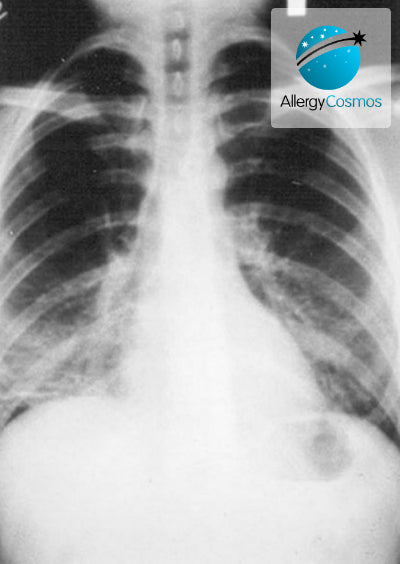Pneumonia is a fairly common lung condition which is potentially very serious. It was once greatly feared because of its high mortality rate but in modern times it is generally curable with antibiotic treatment.
Pneumonia is an acute illness affecting the lower respiratory tract. Inflammation causes the alveoli, the tiny sacs where gas exchange takes place, to fill up with fluid. This impacts on lung functioning. Sometimes the inflammation also affects the lower bronchi and the pleura, which are the membranes lining the lungs.
What are the symptoms of pneumonia?
The symptoms include:
- Fever
- Cough
- Breathlessness/wheezing
- Confusion
- Aches and pains
- Coughing up blood
These symptoms may come on very rapidly and where breathing is rapid and/or there is confusion, the illness is severe and requires prompt medical attention.
What causes it?
Pneumonia is often, but not always, caused by infection. The causative organism may be bacterial, viral or fungal, with the bacterium Streptococcus pneumonia being a particularly common cause. Some specific environmental/occupational exposures may also cause pneumonia. One example is Legionella pneumophila which may be present in faulty air conditioning systems which causes a specific type of pneumonia called Legionnaire's disease. Another is Chlamydia psittaci which is a bacterium transmitted by birds, including parrots, to humans and which causes an infection called psittacosis, which may lead to pneumonia. There is also opportunistic pneumonia, where a normally benign organism infects someone with lowered immunity (e.g. someone with HIV/AIDS). Pneumonia can also occur by inhalation of stomach contents, typically after a stroke. It is also common in intensive care units and associated with invasive treatments such as mechanical ventilation, which tend to introduce infection into an already very sick patient. Doctors often divide pneumonia into two main groups: community-acquired pneumonia and hospital-acquired pneumonia, depending on where the patient most likely acquired the illness.
Who is most at risk?
Anyone who has compromised immunity is more at risk of acquiring it in the first place. Then there are groups for which pneumonia is more likely to be serious and lead to complications. These include:
- Babies and infants (those under 5)
- Older people (those over 65)
- People with diabetes
- People with long-term heart, lung or kidney disease
- People with cancer, especially if they are having chemotherapy
Smoking and alcohol abuse are also significant risk factors for severe pneumonia.
What is the treatment for pneumonia?
Often, pneumonia can be treated at home, by rest, fluids and antibiotics. In more severe cases, hospital admission may be needed and intravenous antibiotics and oxygen may be needed. There is a vaccine available for the most common form of pneumonia (S.pneumoniae) and since it may follow a dose of the flu, at-risk groups should make sure they attend for their free flu vaccination every year.
What is the outlook/prognosis?
Pneumonia is a much more serious infection than colds or flu. Before the advent of antibiotics, it was often fatal. Today, while most people do recover completely, there is still a significant mortality rate, which rises to 50 per cent in the intensive care unit setting.




